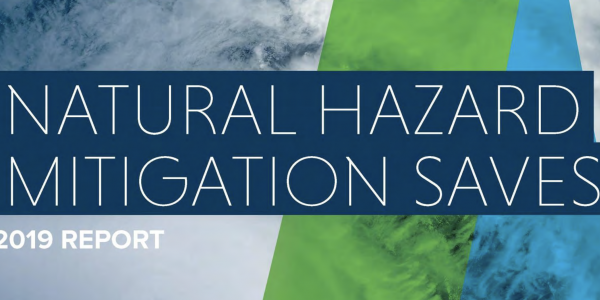
Project Description
The Natural Hazard Mitigation Saves: 2019 Report represents the most exhaustive benefit-cost analysis of natural hazard mitigation, from adopting up-to-date building codes and exceeding codes...
[/html]
The Natural Hazard Mitigation Saves: 2019 Report represents the most exhaustive benefit-cost analysis of natural hazard mitigation, from adopting up-to-date building codes and exceeding codes...
[/html]Pages:
File Size:
Pages:
File Size:

If you live on the West Coast, you might remember that day.
Just last month around July 4, a 6.4 magnitude earthquake struck Ridgecrest, California. The following night, an even larger 7.1 earthquake shook the area again.
These earthquakes were the largest to hit Southern California in 20 years.

News reports say Hurricane Dorian is expected to be a Category 4 storm with 140 mph winds and could land in Florida as early as this evening.
If this happens, Dorian would be the strongest hurricane to strike the east coast of Florida in nearly three decades. The last storm of this caliber was Hurricane Andrew in 1992.
The 2018 Atlantic hurricane season was the third consecutive season with above-average storms. These storms caused more than $50 billion in damages.

The situation in the Amazon has many feeling helpless.
Fortunately, there are ways you can help aid in the protection of the rainforest. And even more ways outlined by Public Radio International.

A year ago – just last November – California met its deadly Camp Fire. It was the most destructive wildfire in California history, claiming 86 lives and covering an area of more than 150,000 acres.
It’s more important than ever that we be ready for anything.
October is National Fire Prevention month. The goal of this campaign – and particularly Fire Prevention Week (Oct. 6-12) – is to increase fire safety awareness and help families prepare for an emergency.

The International Code Council recently held its 2019 annual conference in Las Vegas.
As part of ICC’s government relations forum during a panel called Up-to-Date Building Codes Provide Significant Mitigation Savings, I discussed aspects of the Multihazard Mitigation Council’s study Natural Hazard Mitigation Saves. The panel also included Jeff Czajkowski, of the National Association of Insurance Commissioners, and Kevin Simmons, of Austin College, who spoke about related topics.

When it comes to protecting your home against flood, Mitigation Saves homeowners time and money.
This was the crux of a recent panel presentation that I participated in, during the Strengthening Coastal Counties Resilience Workshop in South Padre Island, Texas. The workshop was arranged by the National Association of Counties (NACo), with funding from the National Oceanic and Atmospheric Administration (NOAA), as part of a project to help counties think through how to improve resilience.